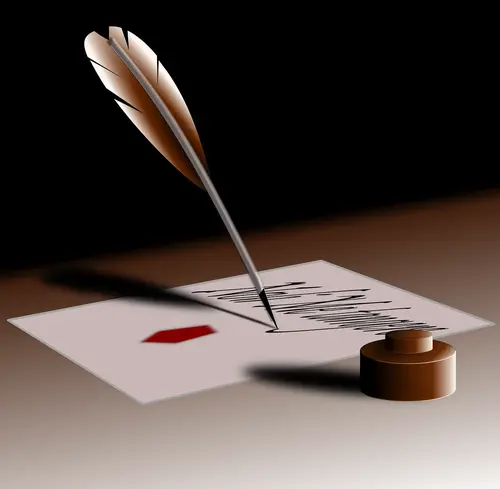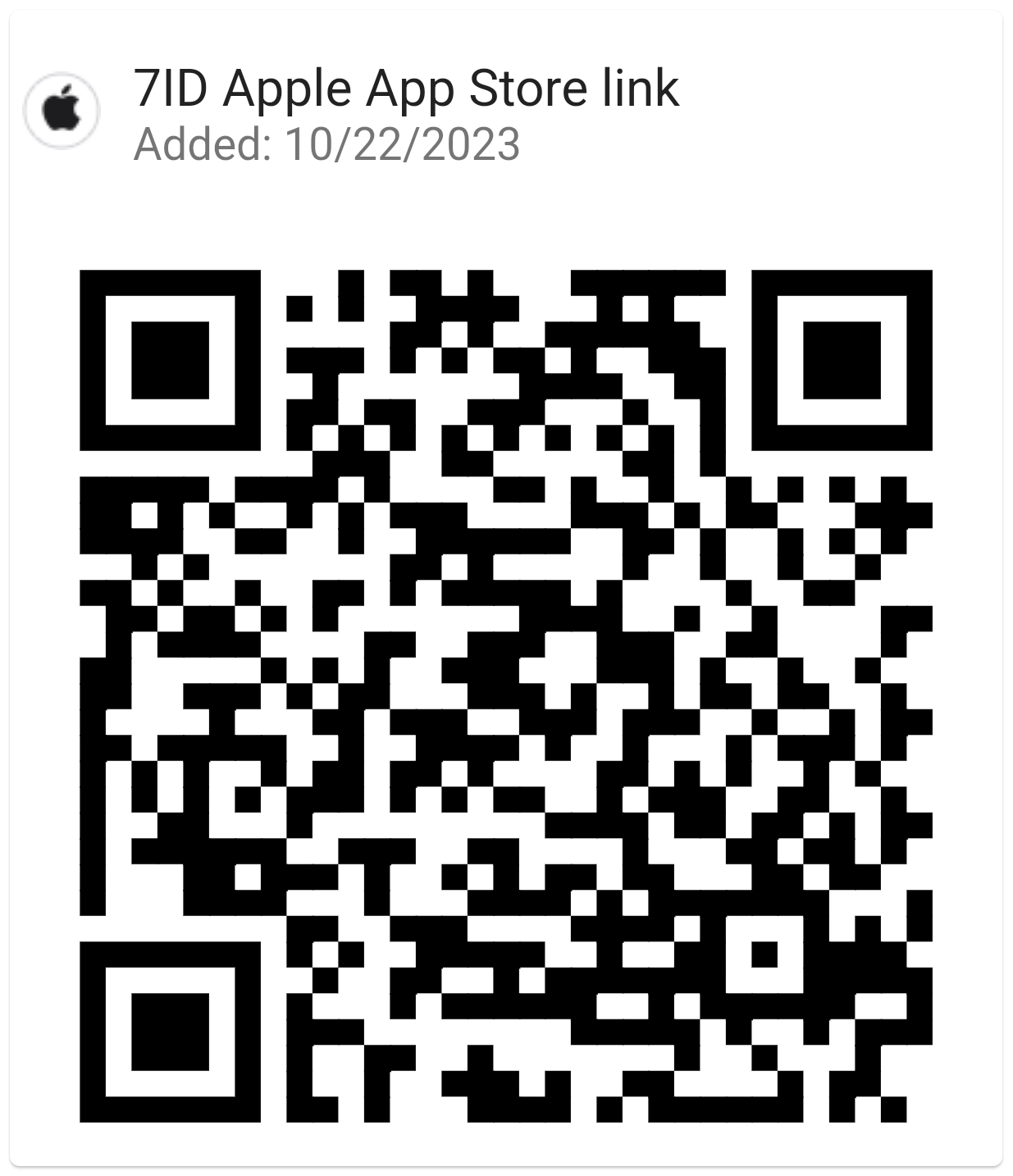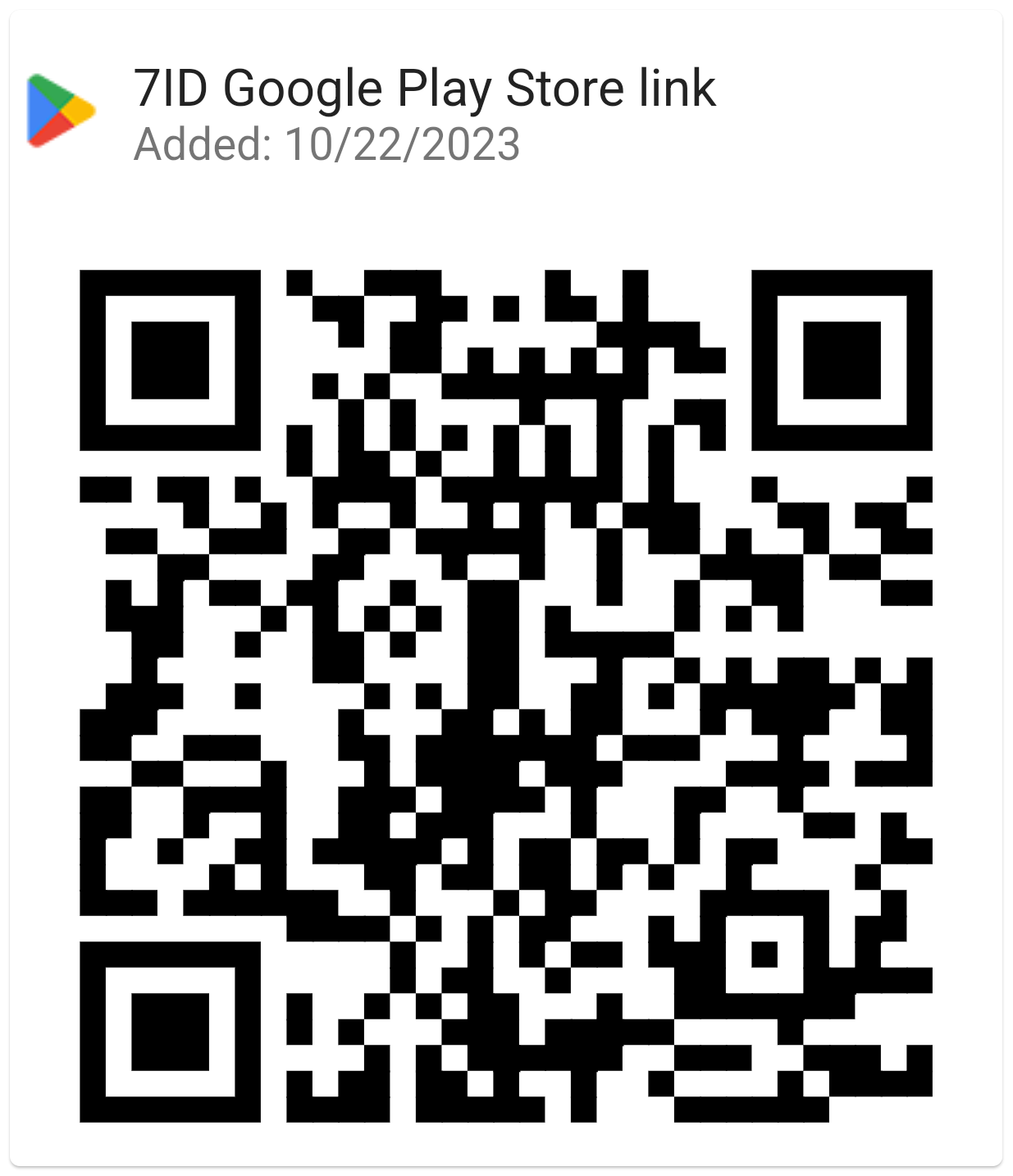Can A Signature Be Anything? What Can You Use As Your Signature
Throughout history, a person's signature has been an essential personal form of identification and proof of that person's agreement with the contents of a document. It often consisted of a written full name or initials or a simple "X". Over time, people have developed unique and personal ways of signing documents to authenticate their identity.
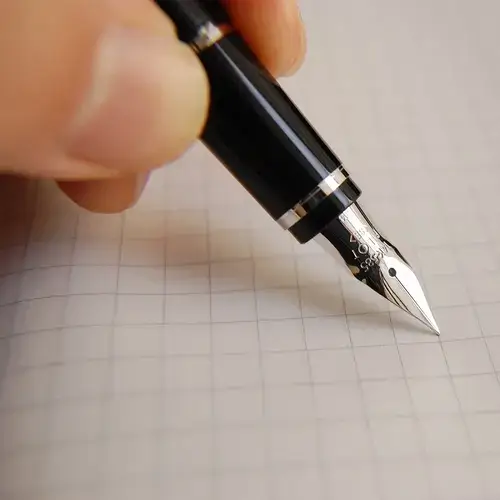
In this article, we will help you solve the "I don't have a signature" situation with a special app and answer your questions such as "Can a signature be anything?", "Can initials be used as a signature?" and others.
Table of contents
- 7ID App: Create and Save your Signature on Your Phone!
- The Traditional Signature
- The Digital Age and Signatures
- Does Your Legal Signature have to be your Full Name?
- Can Your Signature be Your Nickname?
- Does a Signature have to be in Cursive?
- Other Unconventional Signatures Options
- Signatures in Different Cultures
- Biometric Signature Options
- The Future of Signatures
7ID App: Create and Save your Signature on Your Phone!
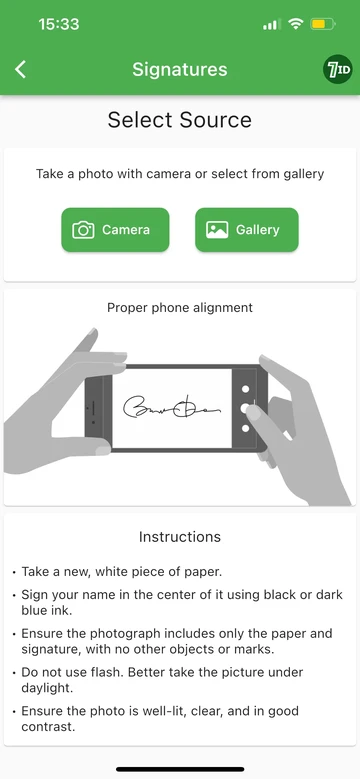
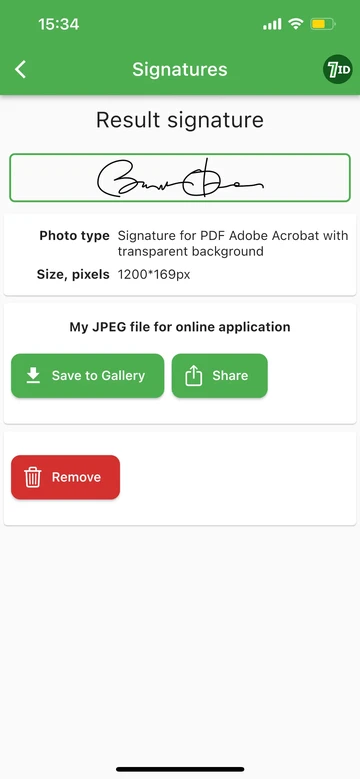
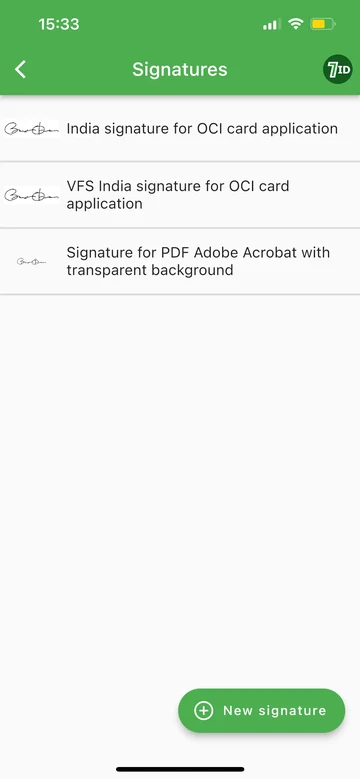
Discover the ultimate e-signature app — 7ID. This app includes a free e-signature feature designed to generate digital signatures required for various official documents.
The 7ID e-Signature tool expertly converts your manual signature into an appropriately scaled, opaque JPEG file. You can save this 7ID-generated image and use it as your digital signature.
The process of creating a digital signature with 7ID is simple:
The Traditional Signature
A traditional signature is the long-standing practice of physically signing a document with a pen or similar writing instrument. It requires the person signing to be present in person or represented by a proxy.
While it provides a sense of formality and historical significance, especially when attached to important contracts or agreements, this method can be time-consuming and inconvenient, as each document must be signed individually. In addition, traditional signatures can introduce risks such as forgery or document tampering, as physical signatures are relatively easy to manipulate.
The Digital Age and Signatures
With the advent of the digital age, the concept of signatures has evolved significantly. Now, we have digital signatures, which have emerged as a secure, efficient, and environmentally friendly replacement for traditional pen-and-paper signatures. Equal in legal status to their handwritten counterparts in many jurisdictions, digital signatures offer several advantages:
Does Your Legal Signature have to be your Full Name?
The common perception may be that a legal signature must be a replica of your full name. In reality, this is not necessarily true. Traditionally, people often sign their full name, but as long as your signature uniquely identifies you and you recognize it as your own, it can be legally valid.
Therefore, the answers to your questions such as "Does a signature have to be your full name?" — No, your signature does not have to be your full name; and "Can I use my initials as a signature?" — Yes, you can. The key is consistency. If you sign with a particular mark consistently on all your documents, your signature will be legally binding.
Can Your Signature be Your Nickname?
When discussing signatures and their legality, a common question is, "Can my signature be my nickname?" The simple answer is yes, technically. You can use it as long as you consistently use your nickname as your signature and recognize it as representing your identity.
However, there might be better choices than using your nickname in legal documents. This doesn't mean nicknames can't serve as signatures, but they could cause confusion or complications, especially on banking or legal documents.
Does a Signature have to be in Cursive?
While it is true that most people choose to sign in cursive for its fluidity and style, your signature does not have to be in cursive. Legally, a person's signature can be in any font, size, or style they prefer, as long as it is consistent and unique to them.
Other Unconventional Signatures Options
Unconventional signature options go beyond the traditional handwritten signature to give individuals more unique ways to identify themselves:
Please note that using unconventional signatures should be done cautiously and is usually appropriate for informal settings. For formal, official, or legal documents, it's important to understand the requirements or acceptability of these unconventional signatures to avoid validity issues.
Signatures in Different Cultures
Signatures, their connotations, and their methods vary from culture to culture. While a written signature is the standard form of authenticating a document in some cultures, this is not the case everywhere. In Japan, for example, a personal seal known as a "hanko" or "inkan" is used instead of a signature. These seals are deeply personal and unique to each individual, much like signatures in Western cultures.
In certain tribal cultures, a discrete symbol or emblem representing the individual or lineage is used instead of a traditional handwritten signature. Meanwhile, in parts of the Middle East and South Asia, thumbprints are commonly used as signatures on official documents, especially for those who are illiterate.
Biometric Signature Options
As technology advances, biometric signatures have emerged as a reliable option for authentication. A biometric signature is based on biological measurements unique to an individual, such as fingerprints, facial recognition, retinal patterns, or even voice recognition:
The Future of Signatures
As technology continues to advance, we can only expect the idea of "signatures" to continue to evolve. Biometrics, in particular, is an area that will grow exponentially.
Artificial intelligence (AI) is another tool shaping the future of signatures. AI technologies, such as machine learning algorithms, can recognize patterns to authenticate digital signatures, increase security, and reduce potential forgery. Biometrics combined with AI could even lead to signatures based on unique characteristics, such as heart rate patterns or DNA.
Blockchain, the technology behind cryptocurrencies, could also revolutionize signatures. It has the potential to create secure digital signatures that are nearly impossible to forge, providing an immutable record of each signature's authenticity.
As these technologies emerge, traditional paper signatures may eventually become obsolete. However, the concept of signatures themselves is unlikely to stay. Instead, it is a shift from traditional pen-on-paper to digital and biometric means.
In conclusion, whether your signature is your full name, a nickname, a scribble, or a biometric, it serves the same essential purpose: to authenticate your identity and certify your consent. But the overarching rule remains: the consistency and uniqueness of your chosen method will determine its acceptance as your signature.
Create and save your unique signature on your phone with the 7ID App!
Read more:
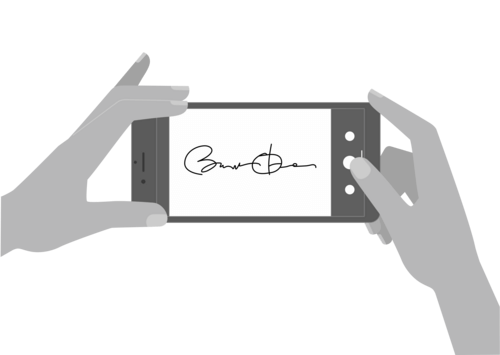
How To Create Electronic Signature With 7ID App (Free)
Read the article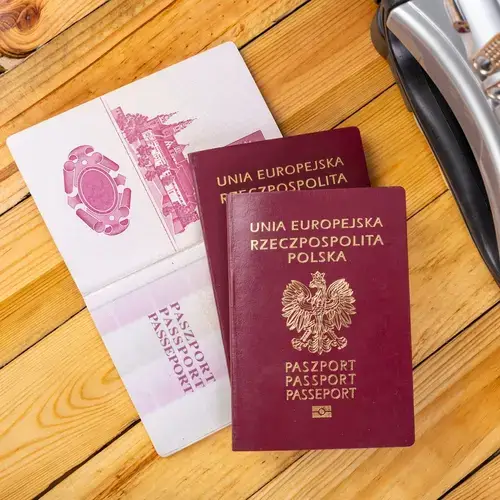
Poland Passport & ID Photo App
Read the article